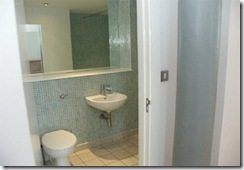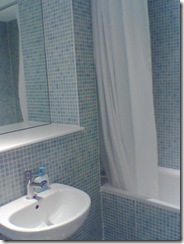 We all know that bathrooms form an important part of any property. A bathroom is one of the most frequently used rooms in the house. It is also one of the rooms most visible to guests. It can show visitors how lavish the occupants of that house are and also creates a great impression to the outside world.
We all know that bathrooms form an important part of any property. A bathroom is one of the most frequently used rooms in the house. It is also one of the rooms most visible to guests. It can show visitors how lavish the occupants of that house are and also creates a great impression to the outside world.
If you take a look at any property magazine today, you will see that some bathroom design ideas are unique, some are simple and some can be quite outrageous.
Different people have different ways of designing their bathroom, no matter how beautiful or weird the outcome may be.
The basic design of a bathroom includes type, style and colour.
There are three basic types of bathroom:
• guest
• family, and
• master bathroom.
When developing property, you don’t always need to build all three. However, if space and budget dictates, you should definitely consider this in your project scope as it will greatly enhance the value of your property.
When it comes to bathroom style, the most frequently used styles are American, English, Southwestern, Victorian, and the Country look. The final decision of the property developer would be to choose one that matches his target market. Designing a bathroom in a style that does not suit your target market can become a very expensive mistake.
When deciding on the colour of your bathroom, 90% of the time, you should opt for lighter colours, for example white. A dark bathroom will not appeal to many people so should be avoided wherever possible.
One very popular option is to go for the natural look, for example a bathroom containing good looking plants, rocks, and falling water. Again, these options would appeal to a more affluent market and may not appear in a smaller 1 bedroom flat.
You could also install a plant shelf or greenhouse window in the bathtub area if space allows.
The addition of plants is especially useful for the purposes of viewings. These plants can obviously be removed once you have sold or rented your property.
Other natural bathroom ideas are:
• Natural lighting.
Some people have skylights installed in their bathrooms. This brings the feeling of a natural relaxing environment.
Halogen lights look much better than bulbs and fluorescent lights and should also be considered.
• Natural accessories:
These include objects made up of wood or Bamboo. One important aspect of these accessories is that they are durable and don’t break easily. Again, don’t worry how expensive any accessories are, as they can be removed once your outcome of a sale or let has been achieved.
When designing a bathroom, you should consider the three primary sources of lighting: ceiling-level, ambient and task lighting. Task lighting could appear around the mirror and throughout the room, for example near your taps, doorknobs, towel bars and toilet paper holder.
If necessary, your bathroom design should also consider using larger tiles to create a sense of space, or rectified porcelain tiles. The rectified porcelain tiles have narrower grout lines making them more pleasing to the eye.
You could also change the door style of the bathroom by using sliding doors especially when the property you are developing is small. For larger bathrooms, you could add a glass sliding door to divide the bathing area and toilet area. The options are limitless.
By planning your bathroom design carefully, you should be able to work with your project manager to create a design that works not just for the property but also for your potential market and most importantly your budget!
Claim Your FREE Limited Edition CD and eBooks Right Now:
http://www.PropertySuccessFormula.com







